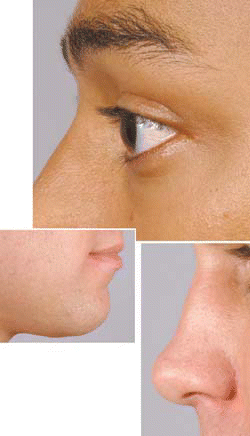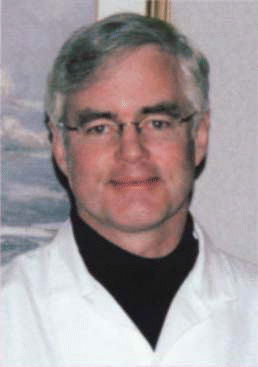Several states have considered taxing cosmetic surgical procedures, and one has passed legislation requiring a 6% tax on such procedures. If such legislation passes in your state, you could be required to collect a tax from patients for procedures such as blepharoplasty or rhinoplasty, adding a burden of paperwork, regulations, and reporting to you, as well as a financial burden to your patients.
Explore This Issue
April 2006It’s not just a tax on the patients. It’s a tax on the surgeon, on the anesthesiologist, and on the facility. That can include ENT, dermatology, and ophthalmology. And it’s incumbent on the individual surgeon, anesthesiologist, and facility to remit the taxes to the state. – -Peter T. Hetzler, MD
New Jersey: First to Tax Surgeries
New Jersey is the first and-so far-only state to pass legislation that requires patients to pay a special tax on cosmetic surgery. In June 2004, just days before the end of their fiscal year, New Jersey legislators passed a bill that called for a 6% tax on certain cosmetic surgical procedures. The tax was imposed in order to increase revenue that would be funneled back into the healthcare system to help provide care for uninsured citizens. Since September 2004, plastic surgeons, including otolaryngologists who perform any surgeries considered cosmetic, must collect and remit this tax to the state.
How does the tax affect physicians in the state? I think this [New Jersey] tax will negatively affect most surgeons performing cosmetic surgical procedures, said Dean M. Toriumi, MD. Established surgeons will likely be affected to a lesser extent, as they will have more mature practices and patients that are better able to pay a cosmetic tax. Surgeons with new practices will have a smaller volume and may be impacted to a greater extent. Many of the straight cosmetic procedures such as facelift, blepharoplasty, and chin implant will be significantly affected by the cosmetic tax. On the other hand, the cosmetic tax may not have as prominent an effect on procedures such as septorhinoplasty with nasal obstruction.
When the bill first passed, Peter T. Hetzler, MD, immediate past president of the New Jersey Society of Plastic Surgery, said, It was a total surprise to us; it passed as a midnight initiative. The state’s plastic surgeons and others had to scramble to learn as much as they could before the tax went into effect in September 2004. It’s not just a tax on the patients, explained Dr. Hetzler. It’s a tax on the surgeon, on the anesthesiologist, and on the facility. That can include ENT, dermatology, and ophthalmology. And it’s incumbent on the individual surgeon, anesthesiologist, and facility to remit the taxes to the state.
Dr. Hetzler helped found the Coalition of New Jersey Medical Professionals to fight the tax. We fought it tooth and nail, said Dr. Hetzler. We don’t want anything in medicine to be taxed-it’s hard enough for the patient. Also, I wanted to stop this from becoming a slippery slope. Once this bill passed, other procedures could be taxed.

The coalition met with state officials and learned that the Division of Taxation was having trouble collecting the tax, both in terms of determining what procedures are taxable and in working with physicians for the fist time. The process is so complex and so difficult, said Dr. Hetzler. It was clear that they hated the tax, but they are mandated to do it.
Even as other states began to look to New Jersey as an example of raising easy money by taxing cosmetic surgeries, the tax was proving not only controversial, but almost too cumbersome to remit and, perhaps most damaging of all, not as profitable as planned. In fact, New Jersey Assemblyman Joseph Cryan (D), who originally sponsored the bill calling for the tax, has introduced a new bill to repeal the tax. Cryan made the following statement: We thought a cosmetic procedure tax was a creative approach to line item deficits in our state’s budget. Unfortunately, it was an untested revenue stream that ultimately hasn’t delivered. Instead of the projected [$26 million] annually, the Division of Taxation estimates collections of less than $6.8 million this year-a 72 percent shortfall.
Dr. Hetzler points out that part of that $6.8 million went indirectly to administrative costs for the complicated tax payment system. It cost a lot to administer this, he said, although there’s no record of the costs because New Jersey lumps all their sales tax collections together.
Why the Tax Didn’t Work
Other states that consider a tax on cosmetic surgical procedures need to closely examine the lessons still being learned in New Jersey. Here are the problems that the state is dealing with:
- Fewer surgical procedures than projected resulted in low collections. There were a decreased number of large procedures requested by clients, explained Dr. Hetzler. Also, the actual procedures [the tax] applied to ended up being much less than expected. Of course, it is easy for New Jersey residents to cross state lines to have procedures performed by physicians in New York, Pennsylvania, or Maryland. There is no record of how many patients might have left the state to avoid paying the tax. Also, the tax bureaucracy was so slow, Dr. Hetzler lamented. They didn’t collect everything in that first year.
- Complex collection procedures cause problems for everyone. Then there’s the issue of auditing doctor’s offices and surgical centers. Imagine trying to deal with patient charts and HIPPA, said Dr. Hetzler. All the charts had to be redacted for privacy. It’s a bureaucratic nightmare.
- Loose interpretation of which surgeries should be taxed. Part of the problem of a state tax on cosmetic surgeries is determining which surgeries would be subject to the law. Would it be the surgeon’s responsibility to differentiate which procedures are purely cosmetic? In New Jersey, the law does not include guidelines for what individual or agency makes this determination.
- The wrong demographic was targeted. The Coalition of New Jersey Medical Professionals researched the income levels of patients requesting cosmetic surgical procedures in their state, and found that 86% were working women. The average household income is just $30,000 to $90,000, with 40 percent of that group reporting incomes of less than $60,000. They wanted to help the budget; the tax was a way to reimburse charity care, said Dr. Hetzler. But it wasn’t well thought out. Many cosmetic surgeries are charity care. I see a lot of charity women with breast cancer; the legislators didn’t know that. They thought they could just tax rich Republican women-I’m not being flip here.
Coming Soon to a State Near You?
Since New Jersey’s tax was introduced, similar legislation has failed in other state governments, including Arkansas, Illinois, New York, Tennessee, and Washington. At the same time, a national coalition has been formed by the American Society of Plastic Surgeons (ASPS), comprising medical associations including the American Medical Association, the American College of Physicians, the American Academy of Otolaryngology-Head and Neck Surgery and others, as well as corporate entities including the manufacturer of botulinum toxin type A (Botox).
Currently this coalition, which has no formal name, is preparing for any legislative battles that may arise in 2006. We’ve done preliminary research on state legislatures, said an ASPS spokesperson. We’re gathering intelligence and looking for other groups to work with. The coalition is not seeking any type of grass roots support yet. They plan to educate people about the negative impact of a tax on cosmetic plastic surgery when and where necessary, and are currently keeping a close eye on the state houses of New York and California, where they believe new legislation may be introduced.
Keep an eye on your state legislative news in the months to come to watch for signs of a proposed tax on cosmetic surgeries. ASPS believes this idea will not die, despite the negative experience in New Jersey.
©2006 The Triological Society

Leave a Reply